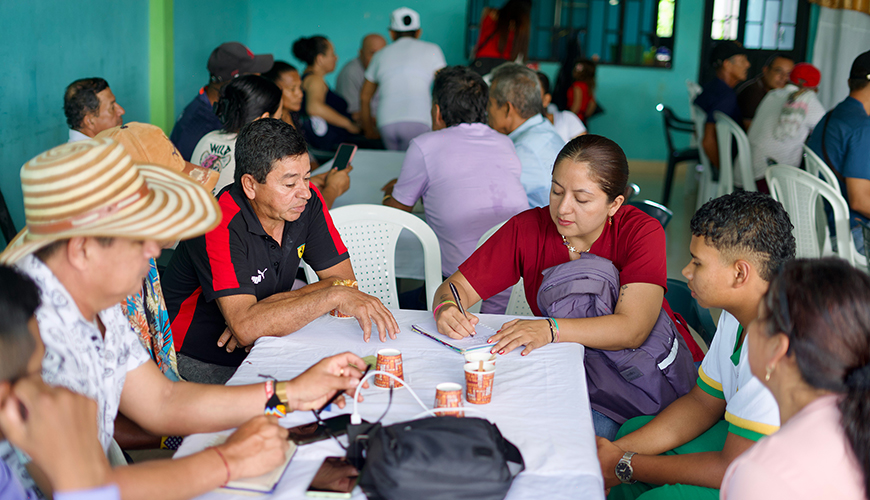Located in the heart of Putumayo, the municipality of Puerto Guzmán welcomed members of the local chapters IRI-Puerto Guzmán, IRI-Santa Lucía, and IRI-Nueva Unión, who participated in a new IRI-Colombia training process on August 22 at the Community Center in the Jardín neighborhood.
“This process invites us to continue building together a living Amazon, a more just Colombia, and a common home where water, forests, and people are respected and cared for,” said Blanca Lucía Echeverry. During her speech, the director of IRI-Colombia emphasized that these educational sessions are part of the organization’s capacity-building strategy, with the aim of helping religious leaders, churches, faith communities, and civil society in general to deepen their understanding of environmental challenges and act together in defense of the Amazon.
The first segment was led by Juan Felipe Martínez, executive secretary of the Pan-Amazonian Ecclesial Network (REPAM Colombia), who led the conference “Water, God’s precious gift: seventh biblical environmental lesson.”
“Water teaches us to be humble: it flows without borders, cleans without asking for anything, and gives life without distinguishing between people. Taking care of it means accepting our role in creation, recognizing that all living things depend on it,” said Martínez, reflecting on water as a sacred symbol of life, purification, and collective responsibility.
The second lecture, “The Amazon, Source of Life,” was given by Diego Fernando Campos, professor at the Francisco José de Caldas District University. “The Amazon is the great regulator of the planet: a green carpet that breathes and balances the global climate. If it becomes sick, the entire planet suffers. Those of us who live in this region have the privilege and responsibility to protect it,” said the biologist, an expert in ecology and sustainable development.
The educational day also included a social mapping exercise, in which participants identified water sources, areas of deforestation, ecological corridors, and priority areas for restoration. This exercise allowed participants to recognize the territory from a collective perspective and strengthen dialogue between communities, churches, and environmental authorities.
The educational meeting was closed by Belén Ojeda, senior consultant in bioeconomy at the Global Green Growth Institute (GGGI), who led the workshop “Nature-based entrepreneurship.” “The bioeconomy is an opportunity to transform development in the Amazon. Protecting the forest can generate social and economic impact, because it is possible to live off it without destroying it. If we keep the forest standing, we not only reduce climate change, but we also promote a green growth model with new productive opportunities,” said the geographer.
The training session in Puerto Guzmán was attended by nearly 50 religious, community, and indigenous leaders, as well as students from the Rafael Reyes Educational Institution, who reaffirmed their commitment to protecting the Amazon rainforest by combining local knowledge, scientific knowledge, and collective action, driven by faith.
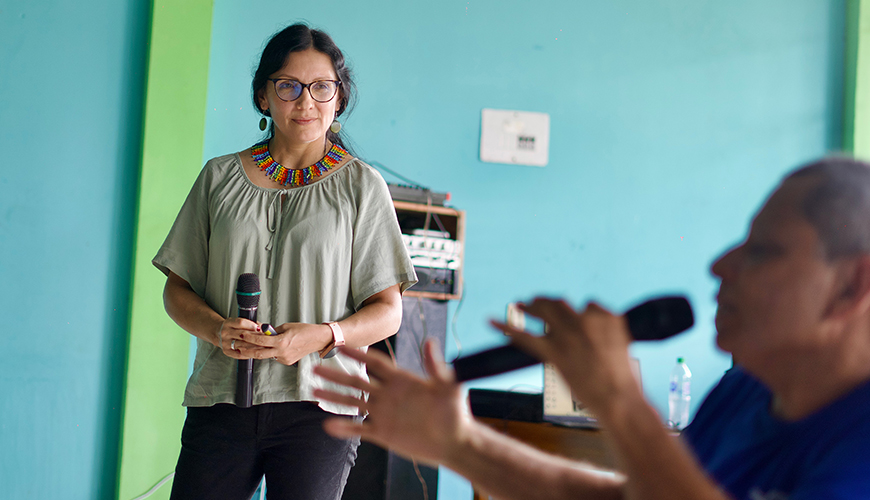 Geographer Belén Ojeda.
Geographer Belén Ojeda.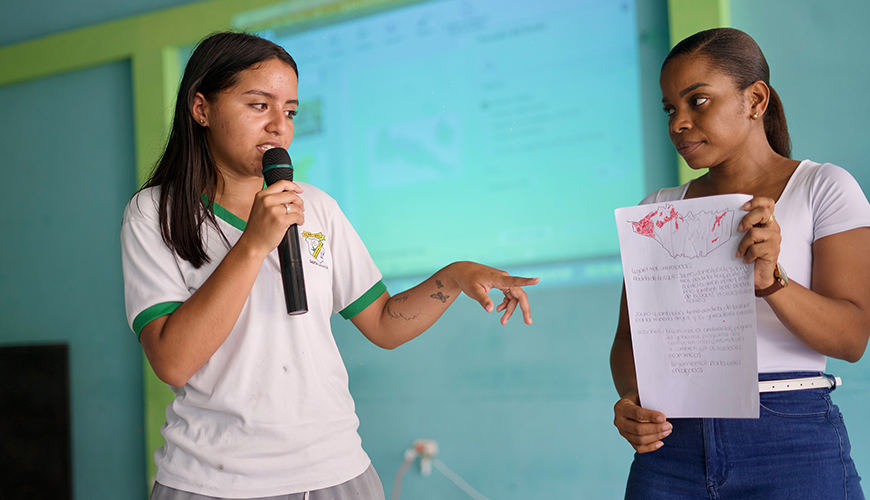 Students from the Rafael Reyes school also participated.
Students from the Rafael Reyes school also participated. Diego Fernando Campos, biologist and expert in Ecology and Sustainable Development
Diego Fernando Campos, biologist and expert in Ecology and Sustainable Development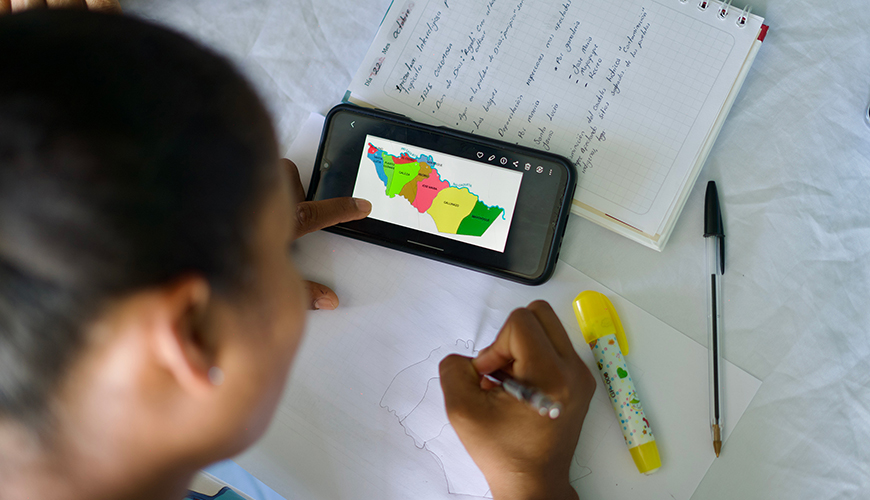 Social mapping exercise
Social mapping exercise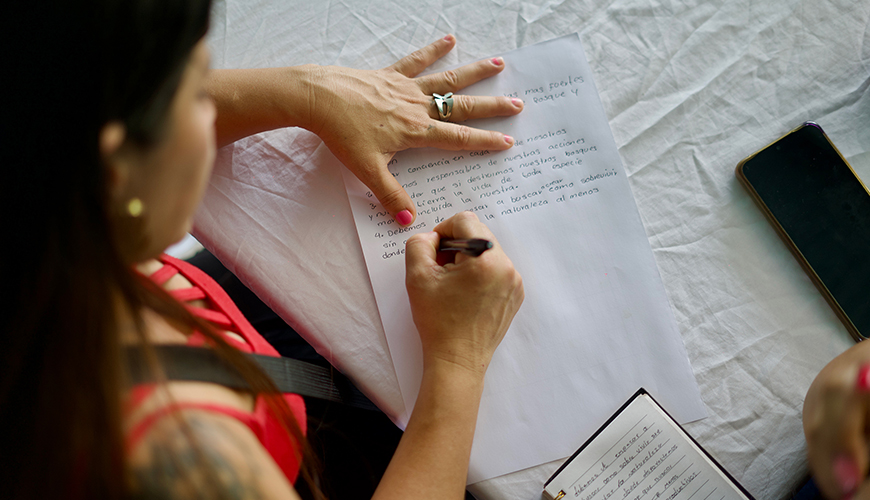
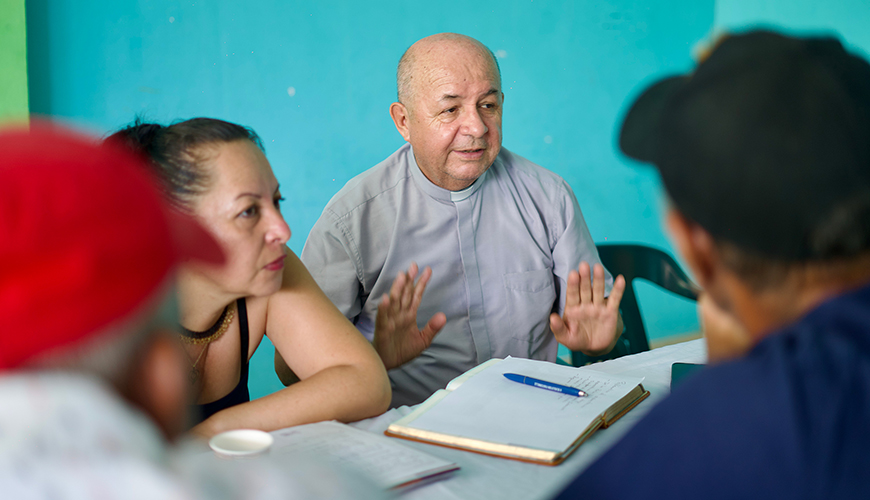 Leaders during the social mapping exercise
Leaders during the social mapping exercise Leaders during the social mapping exercise
Leaders during the social mapping exercise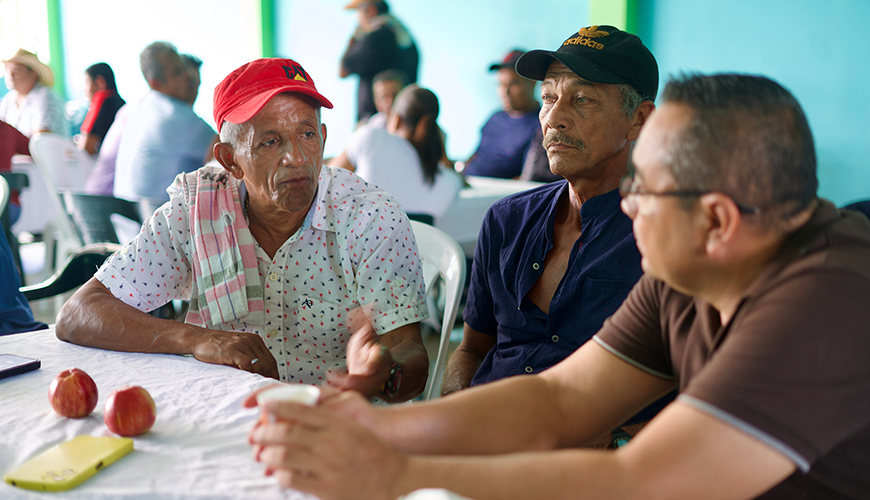

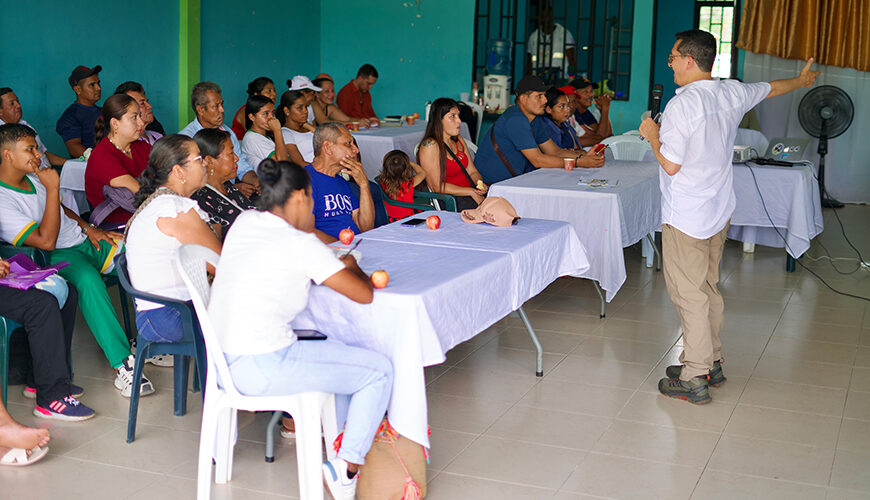 Diego Fernando Campos, biologist and expert in Ecology and Sustainable Development
Diego Fernando Campos, biologist and expert in Ecology and Sustainable Development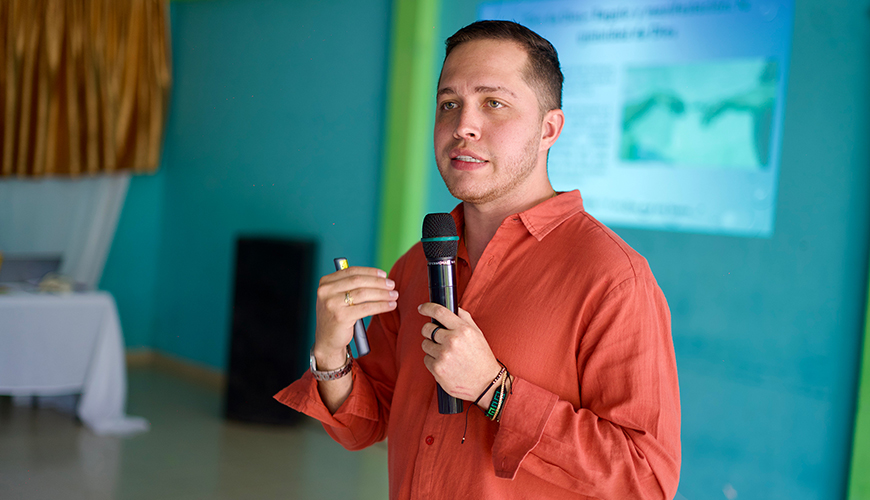 Juan Felipe Martínez, executive secretary of REPAM Colombia.
Juan Felipe Martínez, executive secretary of REPAM Colombia.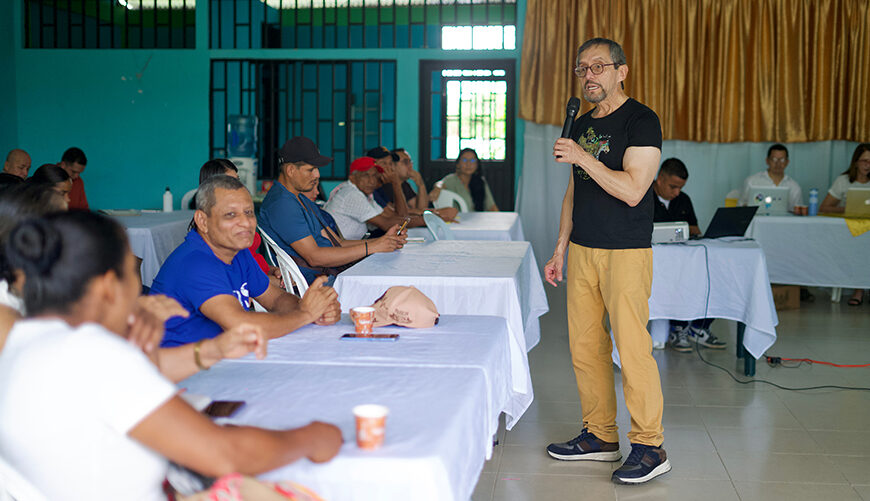
 Soel Correa, coordinator of the local chapters in Puerto Guzmán.
Soel Correa, coordinator of the local chapters in Puerto Guzmán. Blanca Lucía Echeverry. During her speech, the director of IRI-Colombia
Blanca Lucía Echeverry. During her speech, the director of IRI-Colombia Brodcaster Amazonia Stereo
Brodcaster Amazonia Stereo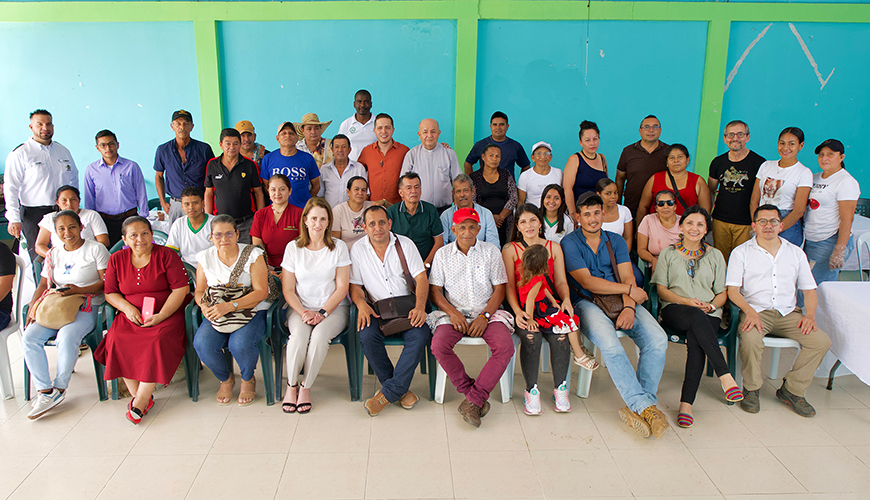 49 leaders from Puerto Guzmán
49 leaders from Puerto Guzmán
